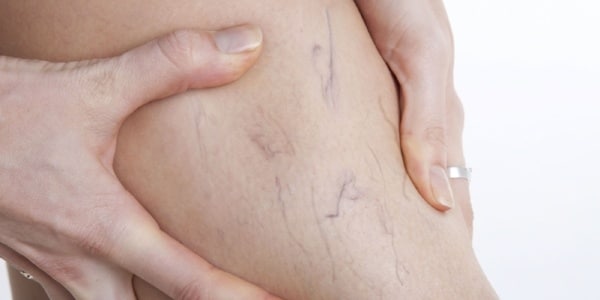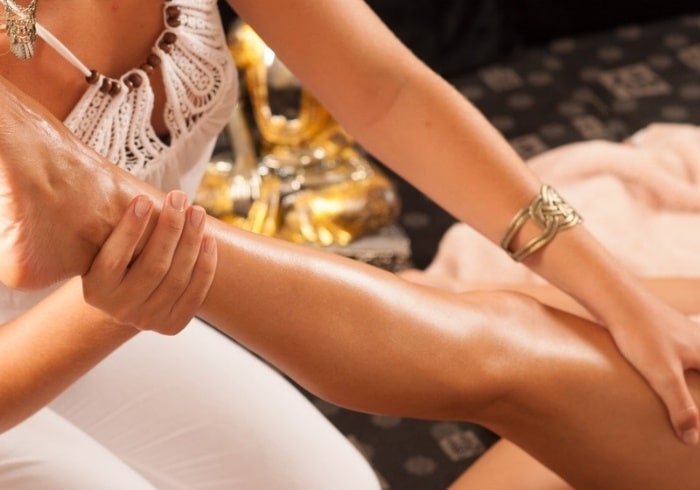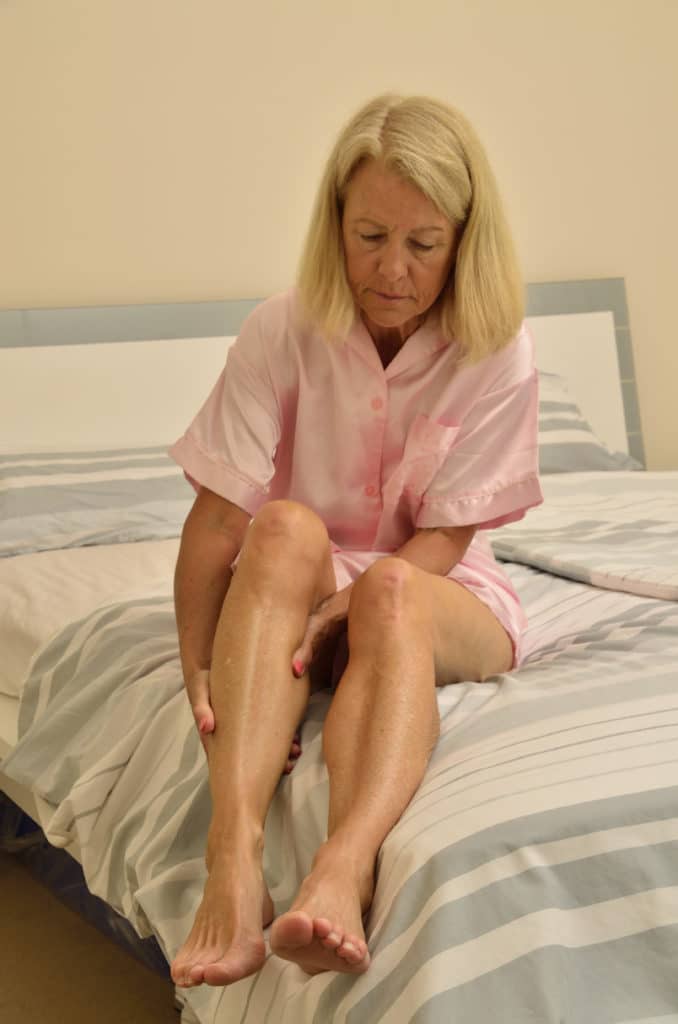
8 Common Myths About Spider Veins
There are a lot of myths and misconceptions when it comes to spider veins. So we asked Jilanne Rose, DPN, ANP-C, a top Metro Phoenix Vein Specialist, to dispel some of the more frequent misconceptions surrounding the cause, risk factors, and treatment of this common vein condition.
Myth #1: Spider Veins are Only Cosmetic
Many people believe that spider veins are unsightly but do not require treatment. Often times, there is underlying venous disease that is a much greater issue.
Myth #2: Spider Veins are Just Part of Getting Older
Although age is one of the risk factors of varicose and spider veins, it’s not the only one and is definitely not the most frequent one. The primary cause of any vein disease is hereditary. In other words, ladies and gentleman, if your mom or grandmother had varicose or spider veins, you are more likely to have them and your age is no longer relevant. In fact, vein disease can start to develop as early as your 20s, and if left untreated, varicose and spider veins will be a natural consequence. Other risk factors include female gender, pregnancy, sedentary lifestyle, being overweight, and having a history of prior leg trauma.
Myth #3: Spider Veins are Strictly a Problem for Women
Incorrect! Spider veins can happen to anyone. It is estimated that as many as 45% of all men will develop some form of venous disease by the time they reach their 60s. The number one cause of varicose veins in both men and women is family history. Lifestyle factors play a significant role as well. If your occupation requires you to stand for long periods, such as medical professionals, factory workers, first responders, sales or restaurant staff, you are more likely to get varicose veins. If you travel and spend long hours flying or driving, or if you sit at a desk for several hours at a time, you are at high risk as well.
Myth #4: Running or Standing Can Cause Spider Veins
Again, this is incorrect. In fact, running, walking or exercise is good for your veins and helps increase circulation. Prolonged standing and sitting in one position does aggravate venous disease and you will notice it more.
Myth #5: Only Overweight People get Spider Veins
Although weight may be a risk factor, a 2015 research article published in Phlebology could not directly link obesity with vein disease, so we can’t really bust that myth. Maintaining a healthy weight and lifestyle can help ease symptoms.
Myth #6: Surgery is the Only Option to Treat Spider Veins
Treatments for venous disease have taken huge leaps forward. Today, there is a range of minimally invasive, maximally effective procedures that can have you back on your feet with a much improved quality of life in very little time. Many of these procedures can be performed in a clinic, on an out-patient basis, with local anesthetic. More often than not, spider veins are treated with non-invasive or minimally invasive techniques that are nearly pain-free.
Myth #7: Vein Treatment is Painful
There was a time when leg vein surgery only referred to procedures such as vein stripping and ligations, painful procedures, likely involving general anesthetic, and definitely involving long and difficult recovery times. There are several modern procedures for varicose veins, spider veins, venous insufficiency and other vascular disease, which, cause minimal pain (if any) and have very fast recovery times. Watch this video from Jilanne Rose to learn more about what you can expect in terms of pain and recovery time .
Myth #8: Vein Treatment is Expensive and Not Covered by Insurance
Many people mistakenly believe that varicose and spider veins are only a cosmetic issue. In reality, the majority of our patients, typically have complaints that indicate an underlying venous condition such as leg pain and/or swelling, restless legs or numbing, tired legs, and leg ulcers. These are real medical problems that significantly impair activities of daily living.
After a full vein exam and ultrasound, patients find that commercial insurance carriers almost always cover vein treatment. Medicare and Medicaid will also cover vein treatment.
Additionally, the latest techniques in Sclerotherapy and Thermal Ablation, are minimally invasive and the costs are considerably lower than what you previously had to pay for a surgery.
It is best to get a complete vein exam and consultation from a qualified vein specialist in order to fully understand your specific circumstances. If you would like to find out if you are at risk of venous insufficiency in the Scottsdale, Phoenix, Mesa or Tempe area, click on the link below to book an appointment.
You were concerned that your varicose veins might be a symptom of chronic venous insufficiency or other blood circulation problems beneath the surface, so you consulted your qualified vein specialist. Together, you decided on your best varicose vein treatment, and you are committed to doing all that has been prescribed for your aftercare. What you…
Read MoreHere is the thing: you could have varicose veins and not even realize it. While we associate the term varicose veins with the really obvious blue and twisty bulges that make our legs look like road maps, this is not always the case. Varicose veins occur when the valves in the veins—designed to prevent the…
Read MoreUsted podría estar pensando que sus varices son sólo un problema cosmético, pero podrían ser una señal de que su salud vascular está comprometido. Si ese es el caso, y si usted está sufriendo de insuficiencia venosa (CVI), es casi seguro que su proveedor de beneficios de salud cubrirá la mayoría si no todos los…
Read MoreYou might be thinking that your varicose veins are just a cosmetic issue, but they could be a sign that your vascular health is compromised. If that is the case, and if you are suffering from venous insufficiency (CVI), it is almost certain that your health benefits provider will cover most if not all of the…
Read MoreDoes massage help varicose veins? You might be thinking that massage is a great way to deal with the ache and pain of varicose veins. It seems like it would make sense. Massage therapy is great for improving muscle tone, blood circulation, general relaxation, and overall tissue health. All of these things are important for…
Read MoreThere are a lot of myths and misconceptions when it comes to spider veins. So we asked Jilanne Rose, DPN, ANP-C, a top Metro Phoenix Vein Specialist, to dispel some of the more frequent misconceptions surrounding the cause, risk factors, and treatment of this common vein condition. Myth #1: Spider Veins are Only Cosmetic Many people…
Read MoreJilanne Rose, ANP-C, and Clinical Director at the Advanced Vein Institute of Arizona has been asked to speak at the “Your Health Matters” Seminar on Thursday, January 26th at 10am. The seminar is being hosted by Generations Senior Living in Gilbert Arizona.
Read MoreIf you think that your varicose veins hurt more at night, you are probably not imagining this. The reason why, in a word, is contrast. This might make more sense once it is explained… Especially since the advent of electrical lights, it can be easy to forget that nighttime is for rest. As daylight…
Read MoreAs a smart consumer and advocate for your own health, you have likely done your research about the variety of varicose vein treatments available, and you have probably noticed that vein procedure success rates are hard to find. Some try. There are statistics tucked into difficult-to-read research abstracts and surveys. Some reports contradict others. Others…
Read MoreIf you worry that getting a second opinion on your varicose vein treatment is rude or disrespectful—don’t! Any reputable health professional will tell you that consulting with more than one health specialist is a smart thing to do. Here are a few reasons why that is… Ensuring a proper diagnosis will reduce anxiety…
Read More

